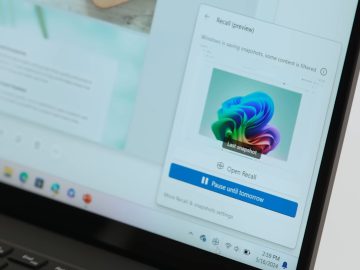Can AI step into the corner office and replace your CEO? Is this such a crazy idea? It’s like suggesting that the junior analyst, hired last month, can take overboard room discussions.
Perhaps the CEO should retire to their beloved golf course, just making periodic ceremonial appearances, after all a smiling human face – saying all the often trite right things – is required.
Academics from the Judge Business School at the University of Cambridge, and the educational start-up Strategize Inc. have provided rare empirical data on how AI would perform as a CEO based on real scenarios.
Experiment reported in a recent Harvard Business Review ran from February to July 2024 involving 344 participants, both executives and graduate students and GPT 4.0 a large language model [LLM] created by Open AI.
AI amazing performance, but at a cost
“GPT-4’s performance as a CEO was remarkable. The LLM consistently outperformed top human participants on nearly every metric. It designed products with surgical precision, maximising appeal while maintaining tight cost controls.
“It responded well to market signals, keeping its non-generative AI competitors on edge, and built momentum so strong that it surpassed the best-performing student’s market share and profitability three rounds ahead,” write Cambridge- based Hamza Mudassir, Kamal Munir, Shaz Ansari and Amal Zahra.
“However, there was a critical flaw: GPT-4 was fired faster by the virtual board than the students who played the game.”
“Why? The AI struggled with black swan events — such as market collapses during the Covid-19 pandemic. We had programmed these unpredictable shocks to shift customer demand, collapse pricing levels, and strain supply chains.
“The top-performing students adopted long-term strategies that accounted for them. They avoided rigid contracts, minimised inventory risks, and managed growth cautiously, ensuring flexibility when market conditions shifted.
“Their strategy was clear: preserve adaptability rather than chase aggressive short-term gains,” note the authors, affiliated with Judge Business School.
Risks of short-term optimisation
“GPT-4, on the other hand, after a string of early successes, locked into a short-term optimisation mind-set, relentlessly maximising growth and profitability until a market shock derailed its winning streak.
“AI can rapidly learn and iterate in a controlled environment, making it less ideal for coping with highly disruptive events that require human intuition and foresight.
Interestingly, top executives also fell into this trap; they, like GPT-4, were fired faster by the virtual board than the students.
Both GPT-4 and executives succumbed to the same flaw — overconfidence in a system that rewards flexibility and long-term thinking as much as aggressive ambition,” write the University of Cambridge academics.
AI is not the silver bullet. Cases of ‘hallucinations’ generating incorrect and misleading information, and losing track of a task mid process, are not qualities associated with astute leadership.
CEO role requires balancing the interests of multiple stakeholders, analysing historical trends and noting subtle changes in the market, with an ability to think in scenarios a few steps ahead.
Provocative food for digital thought, this experiment highlights the risks and implications of greater AI use. If a CEO’s role is to lead the charge to create and capture value, more specifically, in the private sector, maximise shareholder value, AI can’t be ignored. Current monthly subscription cost for Chat GPT 4.0 is US$20, roughly Sh2,600.
A few caveats are required: AI requires high quality data, it tends to have an aggressive shorter term price maximising strategy, and it is not accountable, like the CEO should be.
The Cambridge strategy wizards suggest one way to help senior management to make wise decisions is to create a realistic digital twin of the firm’s ecosystem, using a number of AI tools, serving as a decision-making sandbox.
“Generative AI’s greatest strength is not in replacing human CEOs but in augmenting decision-making. By automating data-heavy analyses and modeling complex scenarios, AI allows human leaders to focus on strategic judgment, empathy, and ethical decision-making — areas where humans excel.
The real risk to human CEOs? Clinging to the illusion that we alone will hold the reins in the future. The future of leadership is hybrid — where AI complements human CEOs focus on vision, values, and long-term sustainability.
The CEOs who thrive will be those who master this synergy, leveraging AI not as a rival but as a partner in decision-making,” write Mudassir, Munir, Ansari and Zahara.
AI’s game changing function is here to stay. But give the CEO out on the green links, a quick call, turns out that there is a co-starring role for them after all.




